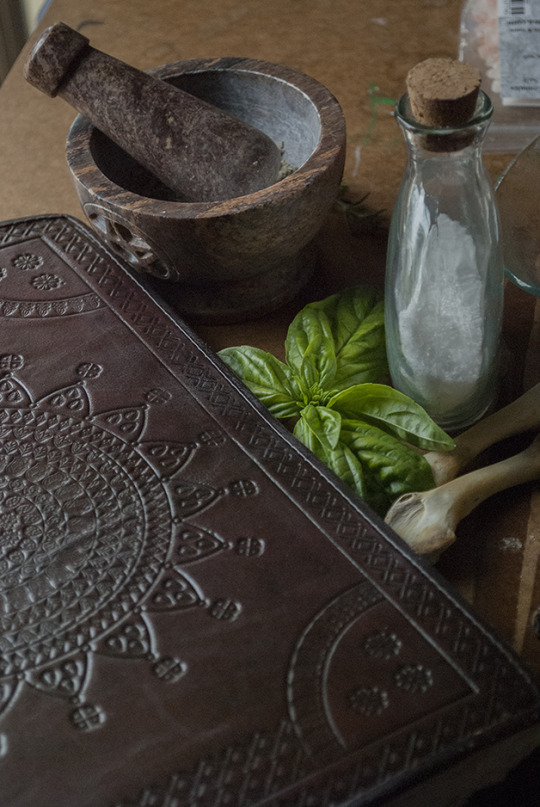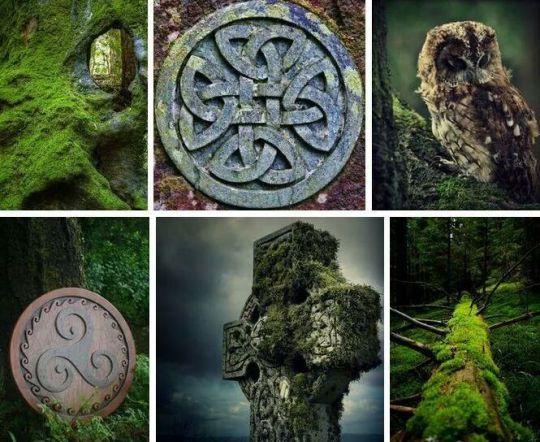Photo
I can think of quite a lot of magical possibilities for this!
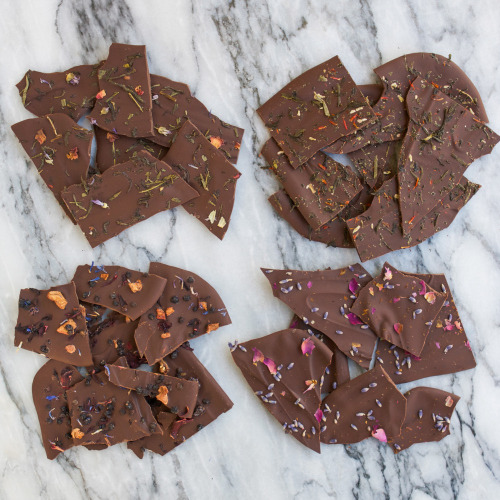
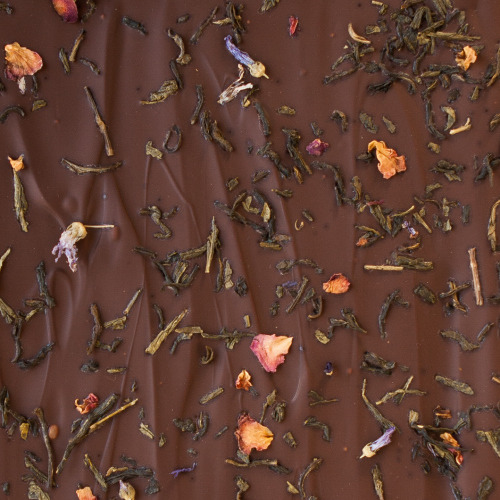
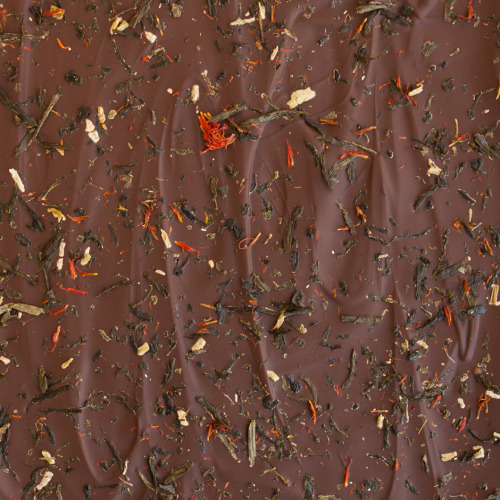
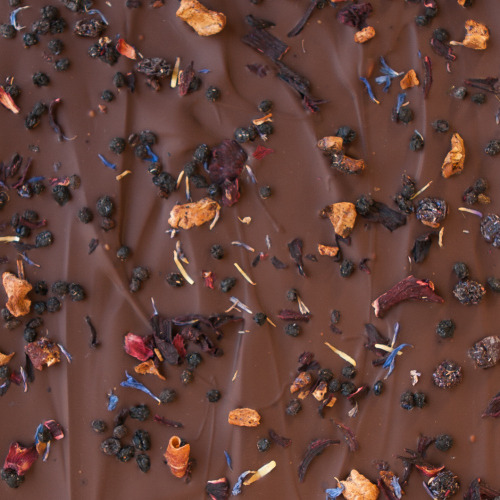

Chocolate Tea Bark
Ingredients:
12 oz semi-sweet chocolate chips (I used Guittard)
9.7-10 oz bittersweet chocolate (I used Scharffen Berger)
10 Tbsp of best quality fragrant, floral green or herbal loose leaf tea/tisane (use different teas if you want, just plan on at least 2 Tbsp of any given type of tea for each 1/2 cup of melted chocolate)
Equipment:
double boiler
3 pieces of parchment paper- torn to 12″ each
1/2 cup measure
rubber or flat spatula
Directions:
1.) On top bowl of double boiler, melt semi-sweet chocolate chips with lightly simmering water (in bottom pan of double boiler). Gently melt the chips until they all have melted and become a thick liquid. Add bittersweet chocolate, 2 ounces at a time, allowing each of the 2 ounces to melt thoroughly before adding the next 2 ounces. Place the pieces of parchment on a large clean work surface.
2.) When all the chocolate has been melted and evenly mixed, use a 1/2 cup measure to scoop out a full measure of the melted chocolate and pour it on the upper half portion of a piece of parchment, making sure to not let it leak over the edge (two 1/2 cup measures of chocolate fit on one sheet of parchment). Smooth out the chocolate using a rubber spatula to an even, desirable thickness for your bark . I spread each 1/2 cup measure of chocolate to a 7″ x 10″ rectangle for a thin bark. From one full recipe, you will get about five 1/2 cup measures of bark.
3.) Sprinkle tea evenly over melted chocolate, about 2 Tbsp for every 1/2 cup of melted chocolate.
4.) Wait for 2 hours for the chocolate to set completely. When set, cut or break bark into 2-3″ pieces and enjoy!
via thirsty for tea
626 notes
·
View notes
Text
Books and Resources (Paganism, Witchcraft and More)
This list has been updated over the years and will continued to be updated over time. If you re-post this elsewhere, kindly credit me because it’s taken a long time to compile what I feel are useful resources on the following topics. The very basics are covered in my FAQ.
Last updated: 8/19/2014
Paganism:
A Pagan Primer — For Those New to Paganism
Paganism: An Introduction to Earth-Centered Religions by River and Joyce Higginbotham
Pagan Spirituality: A Guide to Personal Transformation by River and Joyce Higginbotham
Drawing Down the Moon: Witches, Druids, Goddess-Worshippers, and Other Pagans in America by Margot Adler
Connecting to the Power of Nature by Joe H. Slate
Exploring the Pagan Path: Wisdom from the Elders (a collection of articles, essays and general commentary from various pagan authors)
ChristoPaganism: An Inclusive Path by River Higginbotham and Joyce Higginbotham
Myths and Symbols in Pagan Europe by H.R. Ellis Davidson
Wicca:
Wicca for the Rest of Us
Wicca Resources
Wicca for Beginners by Thea Sabin
Witchcraft Today by Gerald Gardner
The Meaning of Witchcraft by Gerald Gardner
The Spiral Dance by Starhawk (most recent edition only, old editions have inaccurate info that has since been updated)
Elements of Ritual: Air, Fire, Water & Earth in the Wiccan Circle by Deborah Lipp
Wicca: A Guide for the Solitary Practitioner and Living Wicca: A Further Guide for the Solitary Practitioner (Scott Cunningham)
Witchcraft (non-Wiccan):
The Element Encyclopedia of Witchcraft by Judika Illes
Encyclopedia of 5,000 Spells by Judika Illes
Crone’s Book of Charms & Spells by Valerie Worth
Witchcraft: a History by P.G. Maxwell-Stuart
Mrs. B’s Guide to Household Witchery by Kris Bradley
Candle Magic for Beginners by Richard Webster
Master Book of Candle Burning by Henry Gamache
A Grimoire for Modern Cunningfolk by Peter Paddon
Traditional Witchcraft: A Cornish Book of Ways by Gemma Gary and Jane Cox
Non-Wiccan Witchcraft Reading List
Witch of Forest Grove: Sarah Anne Lawless
Welcome to Witchcraft - A Post for Beginners
Witchcraft by Type:
Hedge Witchery Resources
Traditional Witchcraft Resources
Historical Witchcraft Books
Sea Witchcraft Resources / Sea Witchcraft Tag
Cottage Witchcraft Resources
Kitchen and Green Witchcraft Resources
Green Witchcraft: Walking the Green Path
Kitchen in the Cottage
Urban Witchcraft Resources
College Witchcraft/Tips
Chaos Magic:
What is Chaos Magic?
Resources for Sigil Magic and Crafting
World Mythology:
www.sacred-texts.com (free archive of online books about religion, mythology, folklore, and the esoteric)
Mythology: Myths, Legends and Fantasies by Alice Mills
Illustrated Dictionary of Mythology: Heroes, Heroines, Gods, and Goddesses from Around the World by Philip Wilkinson
The Oxford Companion to World Mythology by David Leeming
World Mythology: The Illustrated Guide by Roy Willis
Hellenic Polytheism and Greek Mythology:
www.hellenion.org
www.theoi.com
neokoroi.org
baringtheaegis.blogspot.com
Reconstruction of Hellenic Polytheistic Practices
Hellenic Calendar
An Outline for a Presentation on Hellenismos
Hellenic Resources by Bayoread
Hellenic Resource Download Bundle 1 by Elaphos
Hellenic Resource Download Bundle 2 by Elaphos
Orphic Incenses
Hellenic Terminology
Treasury of Greek Mythology: Classic Stories of Gods, Goddesses, Heroes & Monsters by Donna Jo Napoli
D’Aulaires’ Book of Greek Myths by Ingri d’Aulaire
Old Stones, New Temples by Drew Campbell
Greek Mythology and Prehistory by W. Harris
The Gods of Reason by Timothy Jay Alexander
A Beginner’s Guide to Hellenismos by Timothy Jay Alexander
Hellenismos Today by Timothy Jay Alexander
The Complete World of Greek Mythology by Richard Buxton
Did the Greeks Believe in Their Myths? by Paul Veyne
Kharis: Hellenic Polytheism Explored by Sarah Kate Istra Winter
Homer’s Iliad, The Odyssey and Homeric Hymns
The Homeric Hymns (PDF) and The Orphic Hymns (PDF)
Homer’s Odyssey (PDF)
Homer’s Iliad (Theoi.com)
Hesiod: Works and Days (PDF version here)
The Theogony of Hesiod (PDF version here)
Magic in Ancient Greece:
Magic in the Ancient Greek World by Derek Collins
Magic, Witchcraft and Ghosts in the Greek and Roman Worlds by Daniel Ogden
Arcana Mundi: Magic and the Occult in the Greek and Roman Worlds by Georg Luck
The Greek Magical Papyri in Translation (PDF)
Magika Hiera: Ancient Greek Magic and Religion
Greek Folk Religion by Martin P Nilsson
Curse Tablets and Binding Spells from the Ancient World by John G. Gager
Magic in the Ancient World by Fritz Graf
Magic and Magicians in the Greco-Roman World by Matthew W. Dickie
Roman Polytheism:
Click Here for Books and Resources
Kemeticism and Ancient Egyptian Mythology:
www.egyptianmyths.net
Kemeticism by The Twisted Rope
The Complete Gods and Goddesses of Ancient Egypt by Richard H. Wilkinson
Symbol & Magic in Egyptian Art by Richard H. Wilkinson
Egyptian Mythology: A Guide to the Gods, Goddesses, and Traditions of Ancient Egypt by Geraldine Pinch
Celtic Recon and Myth:
Celtic Folklore on Sacred Texts
The Celtic Recon FAQ
The Religion of the Ancient Celts (Sacred Texts)
What is Celtic? 101
Carmina Gadelica by Alexander Carmichael
The Celts: A Very Short Introduction by Barry Cunliffe
The Mabinogi and Other Medieval Welsh Tales by Patrick Form
Dictionary of Celtic Myth and Legend by Miranda Green
Gods and Heroes of the Celts by Marie-Louise Sjoestedt
The Pagan Religions of the Ancient British Isles by Ronald Hutton
Early Irish Myths and Sagas by Jeffrey Gantz
Druidry/Druidism:
druidry.org
druidnetwork.org
Druidry - A Mega List of Resources
Non-Wiccan Witches: Modern Druidry
Irish Druids and Old Irish Religions (Sacred Texts)
Asatru, Heathenism and Norse Mythology:
www.thetroth.org
grumpylokeanelder.tumblr.com
“Alright, I’m interested in this Norse stuff. Where do I even start?”
The Eddas: The Keys to the Msteries of the North by James Allen Chisholm (PDF)
The Poetic Edda (PDF)
The Prose Edda (PDF)
Exploring the Northern Tradition by Galina Krasskova
Norse Mythology: A Guide to Gods, Heroes, Rituals, and Beliefs by John Lindow
Dictionary of Northern Mythology by Rudolf Simek
Teutonic Myth and Legend by Donald A. Mackenzie
The Nature of Asatru: An Overview of the Ideals and Philosophy of the Indigenous Religion of Northern Europe by Mark Puryear
Crystals and Stones:
The Encyclopedia of Crystals by Judy Hall
The Crystal Bible by Judy Hall
Crystal Healing by Judy Hall
Rocks & Minerals by Chris Pellant (identification handbook)
Encyclopedia of Crystal, Gem & Metal Magic by Scott Cunningham
Crystal Grids: How and Why They Work by Hibiscus Moon
The Book of Crystal Spells by Ember Grant
Herbal (Magical, Medicinal):
The Master Book of Herbalism by Paul Beyerl
Compendium of Herbal Magic by Paul Beyerl
The Green Mantle: An Investigation Into Our Lost Knowledge of Plants by Michael Jordan
The Book of Magical Herbs: Herbal History, Mystery, & Folklore by Margaret Picton
A Field Guide to Medicinal Plants and Herbs: of Eastern and Central North America (Peterson Field Guides)
Encyclopedia of Magical Herbs by Scott Cunningham (good for quick reference, but not in depth information)
The Complete Book of Incense, Oils and Brews by Scott Cunningham
A List of Threatened Magical Herbs
Resources to Start Learning Local Plants
Notes: please take care before using herbs for medicinal and/or supplemental purposes. Many herbs are toxic (some authors fail to mention this!) and/or have harmful side-effects. Always do research and consult a professional before use.
Fae and Faerie Faith:
Resources for the Fair Folk
Fairy Faith 101
Working with Faery (Info and Resources)
The Fairy-Faith in Celtic Countries by W.Y. Evans
Runes:
Futhark: A Handbook of Rune Magic by Edred Thorsson
Runelore: A Handbook of Esoteric Runology by Edred Thorsson
The Complete Illustrated Guide to the Runes by Nigel Pennick
Authors to avoid (due to misinformation, historical inaccuracies, poor research, and/or failure to cite sources):
Silver Ravenwolf
DJ Conway
Edain McCoy
Ann Moura
Ralph Blum (runes)
approach Llewellyn-published books with caution — there are some great ones, but many aren’t well researched and may contain misinformation.
if all else fails, Google the author and ask around to see what people have to say about them - many bad authors have entire pages or discussions dedicated on why to avoid them!
always fact check information (especially if it involves ingesting anything or putting anything on the skin — just because an ingredient is natural does not mean it isn’t harmful/toxic)
How do I know what to believe? Critical Thinking and Pagan Books
16K notes
·
View notes
Photo

Ram (Reithe)
I promise you guys that I shuffled the cards and picked at random. I think it's more than a coincidence that I picked the Ram card around Imbolc.
Considering the importance of the ram in relation to Imbolc will tell you that it represents fertility and although you probably can't see because my phone camera is rubbish in the background of this card there is a ewe and lambs.
The ram represents competition and particularly successfully competing. Rams are well known for butting their heads together and 'locking horns' which has become a phrase we use when we face a task head on and with all our energy.
If drawn reversed the ram is a reminder that sometimes we need to let things go instead of 'butting our head against a brick wall'. Sometimes we need to either go a different path and the ram reversed is a reminder that brute force does not always win the day.
TLDR: fertility, competition and success.
1 note
·
View note
Photo
I had no idea this was an actual thing. I get this quite frequently. I'll have to pay more attention in future.
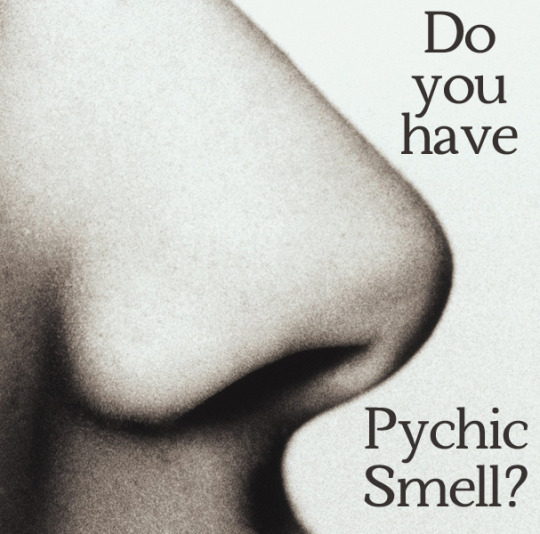
Do you smell things that can’t be explained, like a smell of flowers coming from nowhere, or a stench of something rotten just appearing from thin air. This is called Clairescence.
Many people who have this ability are able to smell moods, they can walk into a room and smell anger or smell sickness, thy can pick up on smells of sadness or happiness.
A lot of people can smell death, it is like an overwhelming stench of flowers like from a graveyard or mortuary, others may smell a rotten or decaying smell.
Having this ability can be very confusing as the smell just appears from nowhere, you ask the people around you if they can smell a certain thing and no one else can smell it.
Many people who have psychic smell can smell memories or spirits such as a person who has passed who was a heavy smoker they will be hit with a smell of tobacco from a certain spot in a room. It may be a person who wore a certain perfume and the smell would just appear. Some can smell a pet after it has died maybe in a certain place in the home such as it’s favorite sleeping place or on the bed (even if the place has just been cleaned)
The smells will sometimes manifest in the most unlikely of places, for example you may be in a swimming pool and smell fire or something burning, or you may be in the office and smell the sea.
You should pay attention to your psychic smell as usually it is a message either as a warning or as a spirit just letting you know they are there. The smell doesn’t just come by accident there is always a reason behind it.
1K notes
·
View notes
Text
The Wheel of the Year
Imbolc: Hell yeah it’s almost spring
Ostara: Hell yeah it’s spring
Beltane: Hell yeah it’s summer
Midsummer: Hell yeah it’s the middle of the summer
Lughnasadh: Hell yeah it’s the first harvest
Mabon: Hell yeah it’s the second harvest
Samhain: Hell yeah it’s the last harvest
Yule: Hell yeah it’s winter
20K notes
·
View notes
Photo
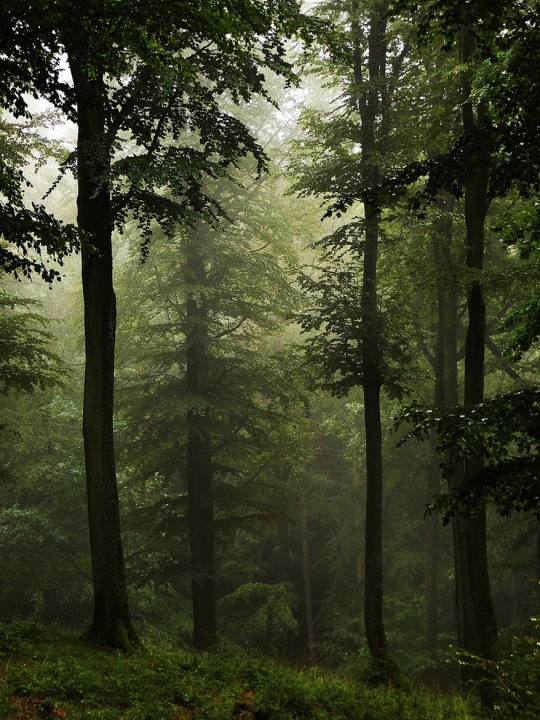
High Forest in the rain by Joanna RB
5K notes
·
View notes
Text
I have a really bad cough at the moment myself and lemon and ginger tea with honey is really helping. Just grab some lemon and ginger tea bags from the shop and make it up with some honey in there.
These are the ones I have but I don't know about their availability outside of the UK.
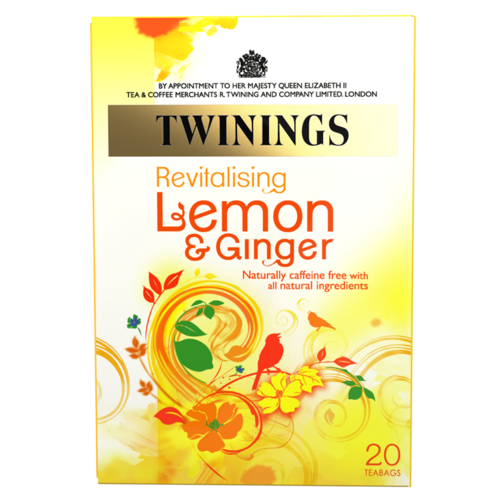
The lemon helps because it contains vitamin C and ascorbic acid. The ascorbic acid acts as an astringent and helps to get rid of any phlegm which may be causing the cough.
Ginger helps with inflammation, if your coughing your guts up then you're probably going to cause inflammation which will in turn make the cough worse it's a vicious circle but the ginger could help that.
Honey is known to have mild analgesic properties and is also a topical antibiotic, as well as tasting nice.
If you can't get hold of lemon and ginger tea you can make an infusion with actual lemons and ginger. Or you could just take a teaspoon of honey, it should help to soothe the sore throat on its own as well.
Hope this is some help.
Kitchen witches, what helps stubborn coughs?
178 notes
·
View notes
Text
I know Imbolc is tomorrow and not today...
but I'm working tomorrow so I'm doing the bulk of the work today.
So what am I doing?
Having a good old spring clean. My flat is a bit of a tip and I thought what better way to bring in the spring than by cleaning the flat from top to bottom.
I've got a teeny bit of a mould problem around my window so I got out an anti-bac wipe and cleaned off the surface mould then I got half a lemon and rubbed it all over the area because the acid in the lemon is supposed to be good at killing mould. The other half of the lemon has gone into a very basic cleansing charm it's upended in a plate of salt on the windowsill.
I've also got some Imbolc oat biscuits in the oven. They've got raisins and lemon rind in (I took the rind off the lemon before I rubbed it on the mould :P). Raisins and oats are symbolic of prosperity and lemon is symbolic of joy.
I'm tempted to make the top of my chest of drawers into a make shift altar.
Then tomorrow when I get in from work I may do a small ritual if I'm not completely shattered.
#Imbolc#spring#spring clean#baking#kitchen witch#kitchen witchery#kitchen witchcraft#cottage witch#cottage witchcraft#cottage witchery
2 notes
·
View notes
Link
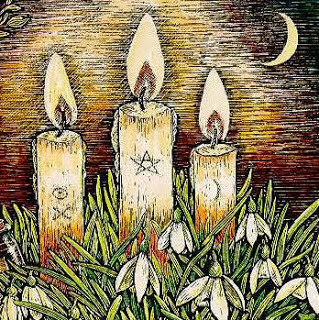
Imbolc Recipes by Akasha
Pagan Recipes - Imbolc
Fair Wind Imbolc Recipes
Greenhaven - Imbolc Recipes
Recipes for a Pagan Soul - Imbolc
Sabbat Recipes - Imbolc - By Red Deer and Elenya
Cookbook of Shadows - Imbolc Recipes
Moonlit Path - Imbolc Recipes
Sacred Mists -…
1K notes
·
View notes
Text
Folklore Friday: Brighid
Seeing as Imbolc (Imbolg/Oímleg) is coming up I thought it would be fitting for my first Folklore Friday to focus on Brighid.
Not to be confused with St Brighid whose feast day also coincides with Imbolc.
Brighid (originally called Brigit in Ireland) was a member of the Tuatha Dé Danann her name literally translates as 'the exalted one'. She was not just worshipped in Ireland however, there is evidence of a tribe called the Briganti in central Britain.
A ninth-century Irish glossary describes Brighid as a poetess and daughter of the Daghda and claims that poets worshipped her because she offered them powerful protection.
She is also linked with domestic animals as she owned two oxen and a pig. This link is perhaps strengthened by the cult of St Brighid as she is patroness of domestic animals.
The first day of spring is St Brighid's feast day, and as we know Christianity (especially in Ireland) absorbed aspects of the prevailing native beliefs to make it easier for for the native people to accept Christianity, because of this it is assumed that Imbolc was originally a celebration for the goddess Brighid.
Brighid is also associated with fertility which would explain her links with Imbolc which was associated with the lactation of ewes
The problem with using medieval sources is that they would have had a Christian perspective and therefor be biased against the original pagan beliefs in addition because they were not written at the time there may be subtleties they missed or aspects that were just made up completely to make it a good story.
Sources:
'The Lore of Ireland', Dáithí Ó hÓgáin
'Celtic Myths and Legends', Martyn Whittock
15 notes
·
View notes
Text
I'm so jealous of people that have space for a full blown altar.
I think I might try and make space in my tiny little flat because I would love to have a proper altar.
1 note
·
View note
Photo
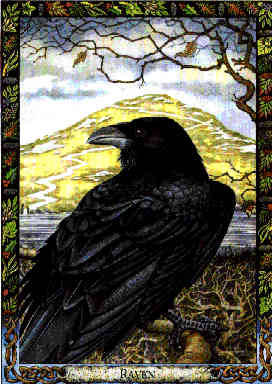
Raven (Fiach Dubh)
The raven marks the death of one thing and the birth of another hence it's association with initiation yet also with death. It marks a crossroads in life.
Because of this association with both death and birth the raven can bring about a very deep form of psychological healing known as "resolution of the opposites" giving the possibility to resolve conflicts which have been long buried.
The ravens association with protection comes from the folk belief that if the ravens ever leave the Tower of London then England will fall
The raven is also a symbol of prophecy and psychic ability.
Drawn reversed the raven might suggest you need to become accepting and aware of the darkness in the knowledge that the light must follow. For without destructiveness how could we create something new. Even reversed it is a card of hope.
TLDR:healing, initiation and protection
1 note
·
View note
Text
I keep seeing a lot of misinformation about Brighid the Celtic deity and St Brighid...
A lot of people seem to be saying that St Brighid was just made up by Christians when they tried to subsume pagan celebrations.
This is not quite right.
They seem to be implying that St Brighid was not a real person. The thing with Saints is that they are all actual historical people. What happened was that they made her feast day the same as Imbolg which was the traditional celebration of the goddess Brighid. Then some of the things attributed to Brighid the goddess were transferred to St Brighid.
That doesn't make St Brighid any less of an historical person.
I've got a post queued up with a little more on Imbolg, Brighid and St Brighid coming up but I needed to say something.
#Sorry I'm a history graduate#who has had to read her fair share of hagiography#Brighid#St Brighid#St Brigit#Brigit
25 notes
·
View notes
Text
20 Clever Altar Ideas
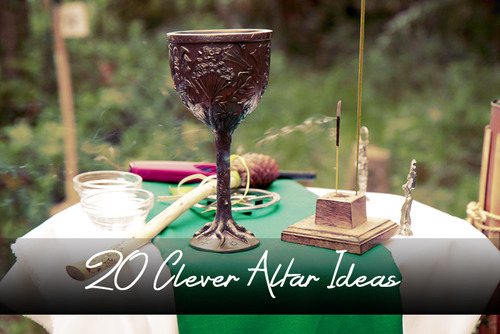
Do you have a small apartment? Do you share your space with someone who doesn’t respect your privacy? Do you prefer to keep you altar out of the way of prying eyes, or be able to bring it with you on the go? Use some of these ideas for creating a Pagan altar that will fit into the smallest spaces, be portable, or hidden in plain view.
Read More
4K notes
·
View notes
Text
true pa·gan
/tro͞o pāɡən/
noun
A fictitious title elitists toss around to put down the beliefs of others. See also real pagan, actual pagan
644 notes
·
View notes
